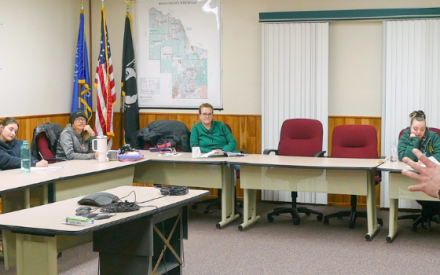Entrepreneurship in Your Community
Local businesses and entrepreneurship play a pivotal role in economic well-being, security, and resiliency. Businesses generate jobs, income, and tax revenue that supports rural, suburban, and urban communities alike. Strong entrepreneurial networks are critical for fostering highly entrepreneurial regions. We focus on research and educational programming that creates the conditions for entrepreneurial growth and develops strong entrepreneurial networks.
Homegrown

Homegrown is a program focused on building and strengthening your local entrepreneurial network. It is a joint effort between the University of Wisconsin-Madison, Division of Extension, and the University of Missouri, Division of Extension. Homegrown can be tailored to community members or professionals with a shared interest in learning about entrepreneurship. The program offers:
- Facts about entrepreneurship, entrepreneurial ecosystems, and why they are important.
- A close look at the local entrepreneurial community.
- The opportunity for participants to identify the local entrepreneurial network.
- Strategies to build network relationships.
- Guest entrepreneurs sharing about their business and support network.
Entrepreneurial Ecosystem
What is an Entrepreneurial Ecosystem?
We use the term ecosystem as a framework for emphasizing the importance of networks and systems in fostering entrepreneurship. According to Kauffman Foundation, you can think of it as a biological ecosystem composed of dynamically stable networks of interconnected organisms and inorganic resources that constitute their own distinct domain of analysis.
More broadly, the ecosystem refers to the fact that certain environments are especially conducive to supporting new and growing companies—the connections and interdependencies of all the factors driving entrepreneurship matter.
Entrepreneurial ecosystems include:
- Actors
- Current and potential entrepreneurs
- Other businesses
- Banks, investors
- Universities and colleges
- Local, state, and Federal government
- Processes
- Entrepreneurial ambition
- Interconnectedness of actors
Key community members who are particularly important to successful entrepreneurs include lenders, lawyers, accountants, and other business service providers, elected officials, teachers, economic development professionals, Extension educators, and other local opinion leaders like you.
Why Entrepreneurial Ecosystem?
Entrepreneurial ecosystems increase the quantity and quality of the entrepreneurial activity. Regions with strong entrepreneurial ecosystems tend to have both higher start-up rates and more high-growth companies.
- Promote diversity (more entrepreneurs, more diverse entrepreneurs)
- Encourage dynamism (competition; innovation; a “buzz” around entrepreneurship, which attracts more entrepreneurs and investment, in turn creating spillovers; all this leads to economic and cultural benefits)
- New opportunities (deal flow for investors, entrepreneurs, customers, their employees)
- Startups are also linked to income growth and poverty alleviation
- Sense of Place
- New businesses and high-growth businesses (defined as annual employment growth exceeding 25% per year) account for 70 percent of U.S. firm-level job creation, 15 percent of firms, 50 percent of total gross job creation each year!
Source: Decker, R., Haltiwanger, J., Jarmin, R., and Miranda, J. 2014. “The Role of Entrepreneurship in U.S. Job Creation and Economic Dynamism,” Journal of Economic Perspectives, Vol. 28, No. 3, pp. 3-24.
Want to Work with Us?
Entrepreneur-to-entrepreneur networks have been the goal of prior Extension programs. Entrepreneurs often establish reciprocity, exchanging lessons learned and ideas, knowing they will benefit from others sharing in the future. Because of these networks, entrepreneurs trying a new venture are able to replicate successful strategies and sidestep potholes with support and encouragement from their peers. Homegrown is a way to engage both entrepreneurs and non-entrepreneurs from the community in the ecosystem to foster an entrepreneurial culture.
























